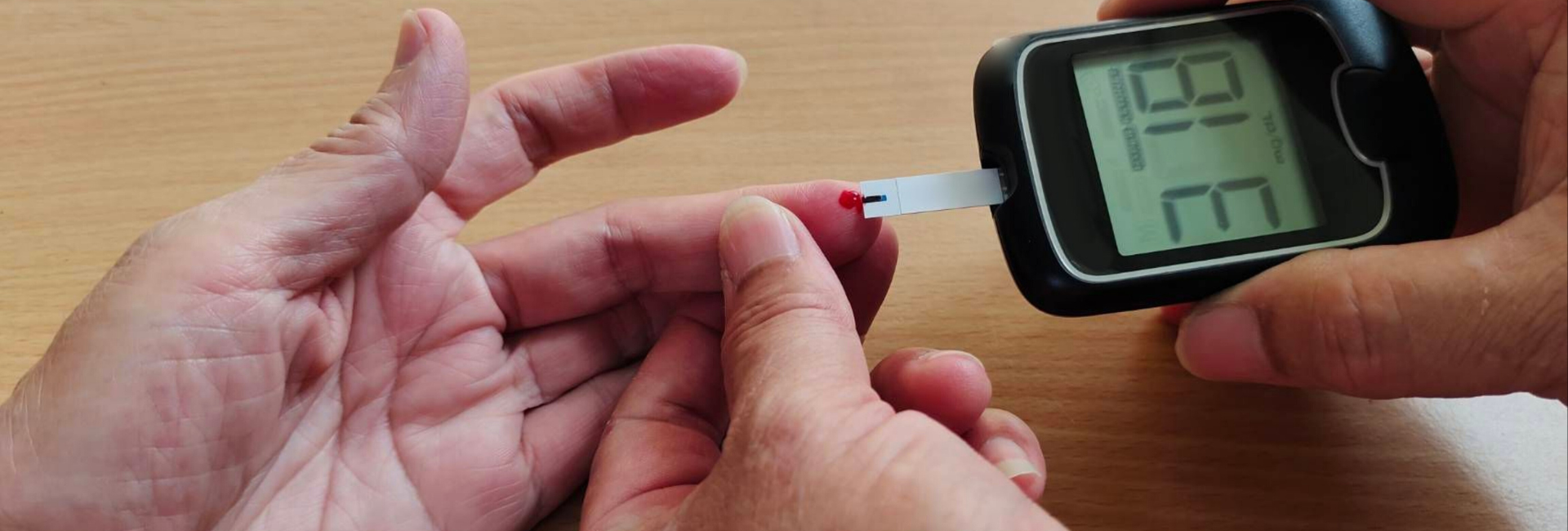 Hyperglycaemia occurs when your blood sugar readings remain persistently higher than the glucose target set with your healthcare team.
Hyperglycaemia occurs when your blood sugar readings remain persistently higher than the glucose target set with your healthcare team.
How do I know if my blood sugar is high?
You may experience the following symptoms:
- Feeling very thirsty
- Passing urine more frequently than usual
- Weight loss
- Tiredness
If you have a glucose meter, check and confirm your blood sugar level. If hyperglycaemia is not treated, severe symptoms may occur, including:
- Breathlessness
- Fruity-smelling breath
- Nausea and vomiting
- Abdominal pain
- Drowsiness
- Unconsciousness
Seek medical attention early if you have symptoms of hyperglycaemia.
If you are experiencing severe symptoms, go to the emergency department immediately.
Note for caregivers -
If someone with high blood sugar is drowsy or unconscious:
- Do not attempt to feed them any food or drink.
- Lie the person on their side.
- Call 995 for an ambulance immediately.
|
The absence of symptoms does not always mean that all is well.
It is beneficial to monitor your blood sugar levels at home. Monitoring will help you understand how your sugar levels fluctuate and allow you to take the necessary steps to improve your health. Click here to find out more about how to check your blood sugar levels and what glucose targets you should aim for.
What should I do when I have high blood sugar?
See a doctor if you are feeling unwell. During an illness such as the flu or gastroenteritis, blood glucose levels can rise due to the stress of the illness.
If you are feeling well, you can do the following to reduce your blood sugar levels:
- Take your medications and insulin regularly. Ensure that you are taking them correctly (right dose, right timing, right method). Check that your medications and insulin are stored properly and not expired.
- Drink water when thirsty and stay well-hydrated. Avoid sugar-sweetened beverages.
- Eat healthy meals according to the Healthy Plate principle. If your two-hour post meal glucose readings are above 10 mmol/L, reduce the proportion of starchy and sugary food in your meals.
- Minimise snacks between meals.
- Incorporate regular physical activity into your lifestyle. Exercise can help lower blood sugar levels.
Record your blood sugar levels, medications, food intake, and exercise to track if these changes are working for you. Bring your records along when you see your doctor.
Sometimes, your blood sugar levels may remain high despite taking the above actions to reduce it. If so, talk to your healthcare team as soon as possible, as there may be other reasons for high blood sugar that need to be addressed.
These could include:
- Other health conditions that are causing your blood sugar levels to be high.
- Medications (such as steroids) that increase glucose levels.
- The need to change or adjust the dose of your current diabetes medications.
Back to 'Diabetes Complications' >

 Hyperglycaemia occurs when your blood sugar readings remain persistently higher than the glucose target set with your healthcare team.
Hyperglycaemia occurs when your blood sugar readings remain persistently higher than the glucose target set with your healthcare team.















